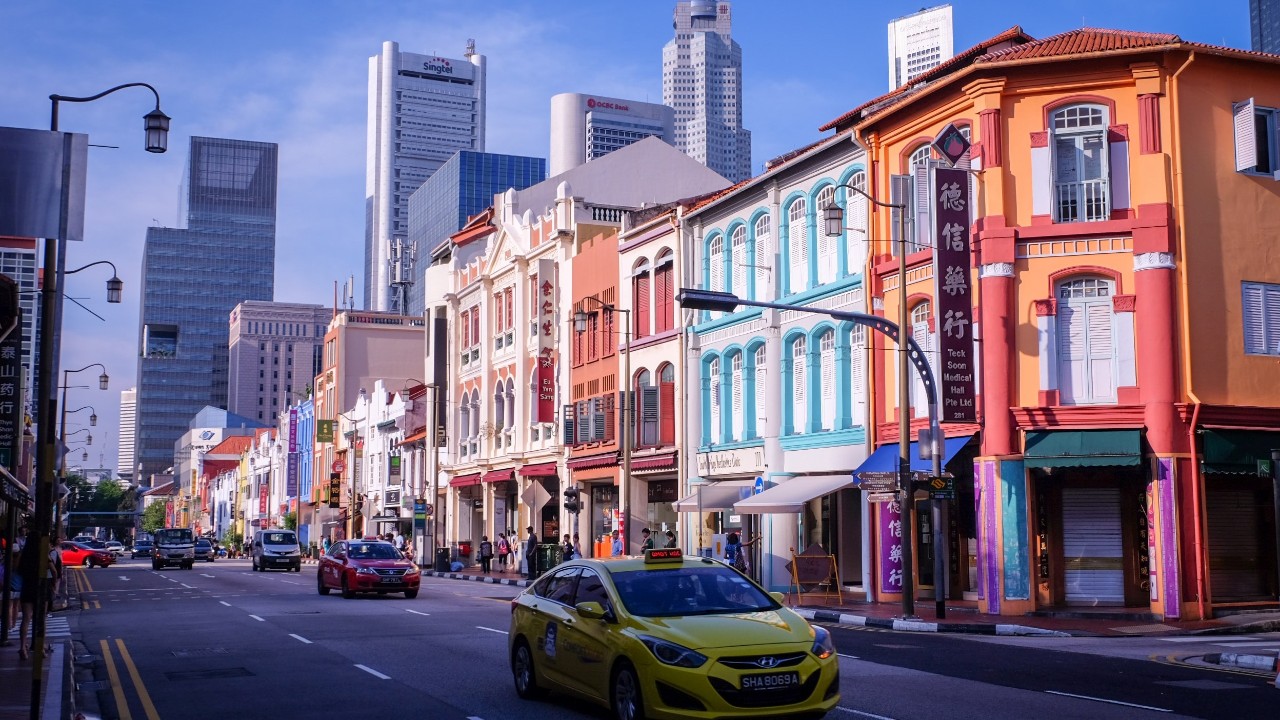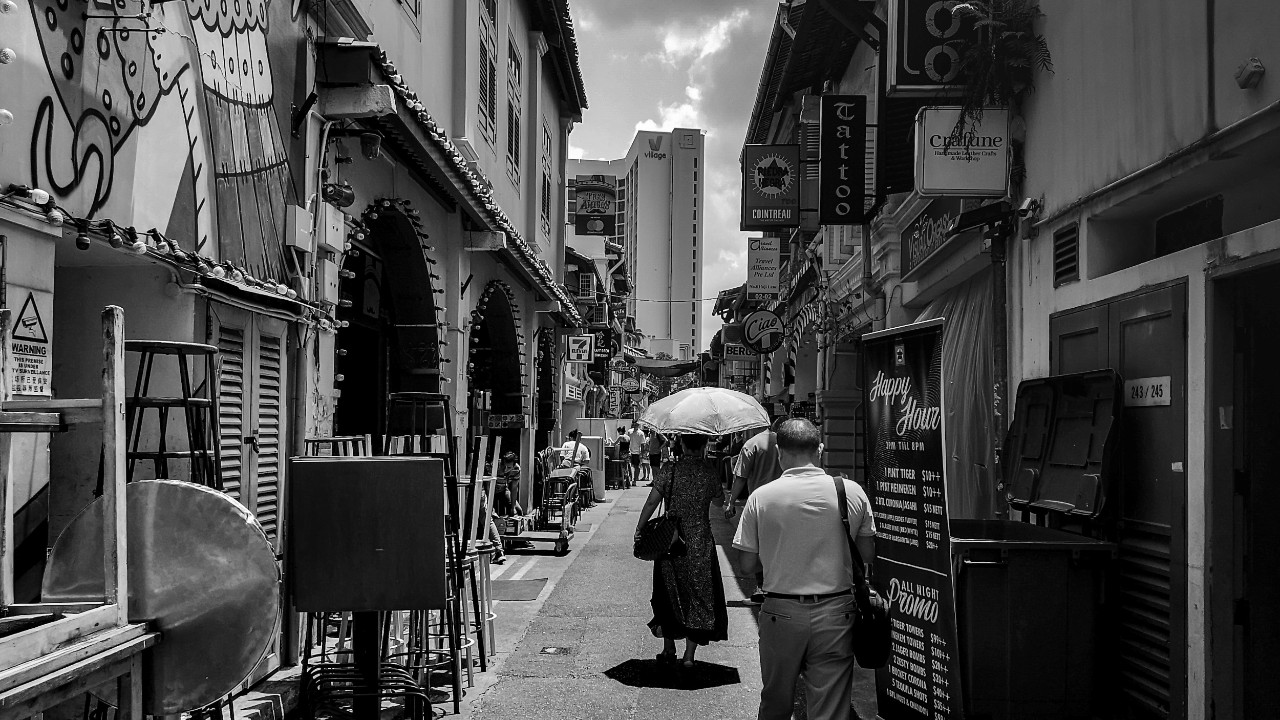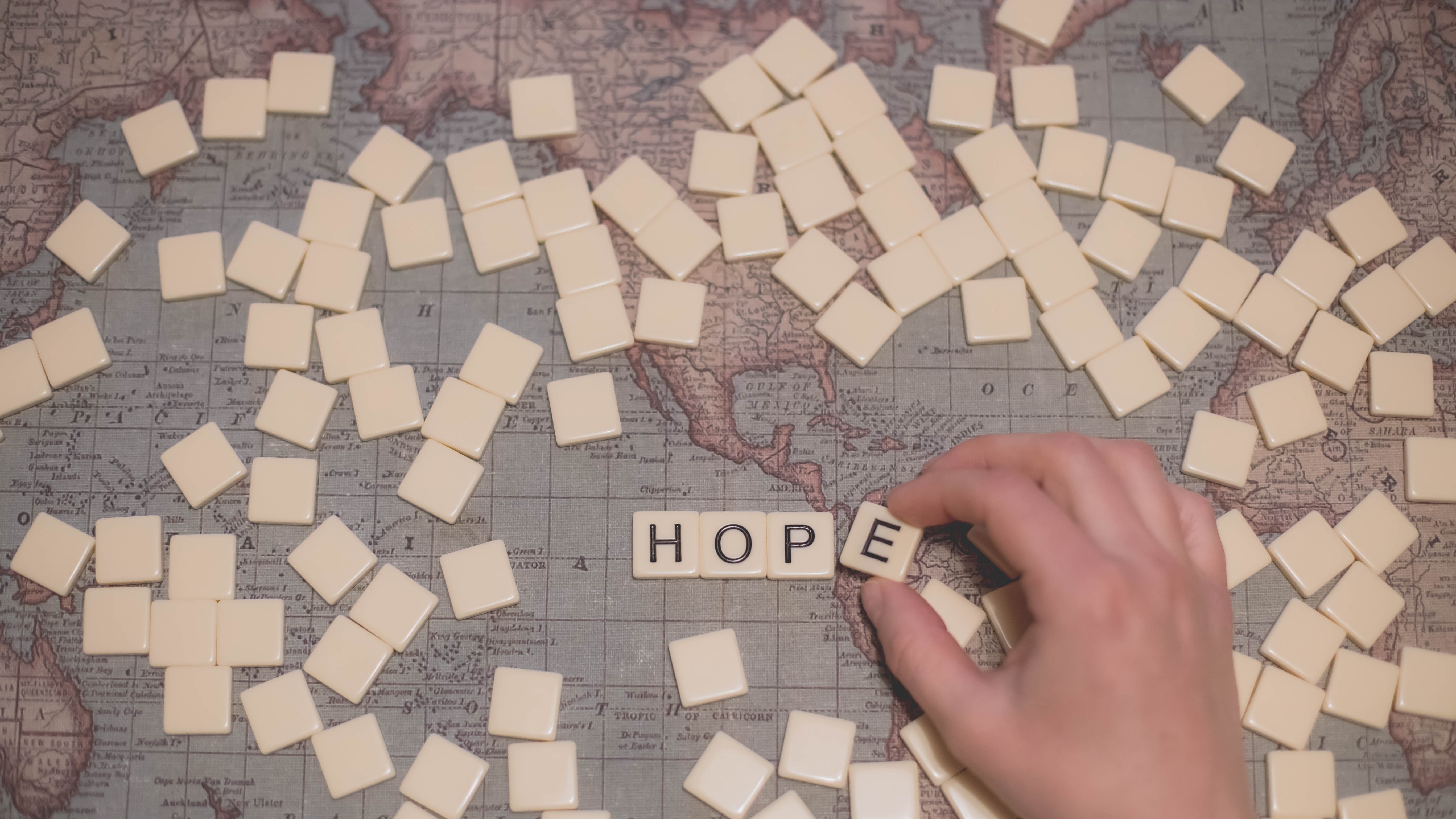Learn how to share the Gospel of Jesus Christ through these dynamic and engaging webinars. Reach people around the world with these new skills you will acquire.
Find incredible resources to help you share about the life-changing power of Jesus Christ. Help others find hope, healing and peace in His love.
Curated resources by Media Ministry
Discover the transformative power of sharing the Gospel of Jesus Christ with others. Spread the love and hope of salvation. Start today.
Transform your life through a personal relationship with God. Experience His love, guidance, & grace. Find inner peace & fulfillment. Contact Cru Singapore.
Gain a deeper understanding of Christianity. Explore its beliefs, values, and teachings to develop a rich spiritual life. Embrace the power of faith!
Gain insight into Christian beliefs. Explore the foundations of faith, including the Holy Bible, Jesus, and salvation. Deepen your understanding of faith!
Discover a new perspective on life through Jesus. Explore His teachings, mission, and purpose. Gain a deeper understanding of Christianity and life!
Discover the transformative power of faith through our success stories Explore inspiring stories and biblical teachings to deepen your spiritual journey.
Cultivate a deeper connection with God and invite his divine presence into your life. Explore practical tips for experiencing peace, joy, and purpose.
Uncover the truth about Jesus. Explore His life, teachings, and role in Christianity. Gain a deeper understanding of His identity and impact on the world.
Looking for online Christian courses and events here in Singapore? Discover how you can be closer to him through our Christian course and events!
The Significance Project is a discipleship course that combines life coaching techniques with facilitators and peer coaches at Cru Singapore!
Familylife Singapore aims to effectively develop Christ-centred marriages and families who change the world one home at a time. Learn more today!
Searching for young adult counselling in Singapore? Cru's ThriveSg counsellors are ready with a listening ear to hear your stories! We are just a click away.
How do Christians pray to God? Discover how to build a deep relationship with Him. Take the next step in your faith journey with Cru Singapore!
Looking for dating advice? At Cru Singapore, we share how you can keep God at the center of your relationship. Learn more about ideal dating today!
Searching for resources to learn more about the Bible? Kickstart with Bible study materials from Cru Singapore today. Learn more!
Sharing our faith is one of our most important callings as followers of Jesus. Learn more about sharing the good news of the gospel at Cru Singapore!
Help others in their faith journey through discipleship and mentoring.
Learn how to connect with people through digital channels. We’ve compiled the best resources in the area of digital ministry!
Want to be #READY to start conversations, share your stories, build relationships, to show God's love and share his message with everyone around you?
Athletes in Action aims to assist you in integrating sports, life, and faith. We believe that knowing Jesus leads us to our true motivation and identity!
We seek to equip & resource the body of Christ to fulfil the Great Commission, through providing transforming Bible-inspired literature.
Join a vibrant creative community in Singapore and explore your passion. Connect with like-minded individuals and discover new opportunities today!
Events to bless and refresh the body of Christ in their faith.
Join a vibrant Christian student community and deepen your faith. Find fellowship, support, and resources to grow in your spiritual journey. All are welcome!
Learn how to connect with people through digital channels. We’ve compiled the best resources in the area of digital ministry!
A global community engaging with ideas and each other to advance God’s Kingdom through innovation
Find practical and biblical solutions for building strong families in Singapore with FamilyLife. Discover resources, events, programs and more!
Incorporates life-coaching methods along with facilitators and personal peer coaches to help you to discover your personal mission.
We are passionate about connecting others to Jesus and supporting local churches in missions. And we are well-equipped to prepare and send you to the nations.
Connecting in community for the well-being of the city.
ThriveSg is a ministry that seeks to empower people to thrive significantly by promoting emotional wellness & resilience, through cultivating self-discovery, providing emotional healing and supporting personal growth.
Want to switch your career? Discover the different Christian ministry jobs at Cru Singapore. Your passion might align with us to reach the world!
Find meaningful and fulfilling volunteer opportunities that align with your values and beliefs. Join us in spreading love and hope to the world!
Are you looking for mission trips? At Cru Singapore, we are passionate about connecting others to Jesus and supporting local churches in missions. Join us!
We have several internships designed to help you put your skills and training to work in support of many Cru initiatives. Get to know the world of opportunities to put your diverse talents and ministry experiences to work for Christ’s mission in the world.
Hear from Leadership Mentor, Lam Kok Hiang, as he shares his experience and heart with us through these short devotional reflections
Are you looking for resources to help you grow spiritually? Cru Singapore provides engaging and life-changing resources to help you grow in your faith.
Visit our platform to have your transaction processed via your preferred payment mode.
Cru Singapore seeks to help people find faith in Jesus Christ and to grow as a disciple. Find out how to give towards our work!
How to request for Moorings Staying The Course.
What we believe about the gospel and our call to serve every nation.
Do you know who's behind Cru Singapore? Our Board of Directors is made up of experienced professionals with a wide range of skills and backgrounds.
Cru Singapore's milestones through the years.
Leading from values so others will walk passionately with God to grow and bear fruit.
The Significance Project is a discipleship course that combines life coaching techniques with facilitators and peer coaches at Cru Singapore!
Cru Singapore is a Christian Ministry that exists to see people reach their potential in life by connecting their life to Christ. Join our journey!

Singapore has seen quite the year—from different phases of the global pandemic, to the recent elections, forming our new government, and everything in between. Amid all of this, we’ve come to see what our tiny nation is made of.
The idealist in me is heartened to see #SGUnited. Whether to appreciate the efforts of our frontline workers, care for each other during this time, or showcase different ground-up initiatives, it has brought a sense of togetherness in Singapore.
However, this year has also surfaced where we must do better. Learning to be more inclusive and aware, to care for our foreign brothers and sisters and those who are more vulnerable in society, to name a few.
As we move into our 55th year as a nation, how do we be Singaporeans that build our society for the better? Even as we remember our heavenly citizenship (Phil 3:20), here are 4 considerations of being a good citizen here.
For more resources on how to deal with various issues that life might throw your way
Find out more here
1) Be a good neighbour—We all know the commandment to love our neighbour as ourselves. But “who is my neighbour?”
When asked this, Jesus responded with the parable of the good Samaritan (Luke 10:25-37) with a surprising answer at the end: “The one who had mercy on him.”
It is not a question of who is or isn’t my neighbour, but who can I be a good neighbour to? Our eyes and hearts must open and start taking notice of what’s around us—a coworker being unusually quiet, an aunty struggling to carry all her bags. Let us then reach out, even if it may be inconvenient or out of the way, let’s be the kind of neighbour that freely extends the mercy that was first shown to us.

2) Care for the least of these—God’s heart is always for the vulnerable, the “least” among us.
"He defends the cause of the fatherless and the widow, and loves the foreigner residing among you, giving them food and clothing." (Deuteronomy 10:18) Particularly in the wake of COVID-19, we now clearly see the vulnerable in our society.
This statement Jesus makes is found in Matthew 25:40 and 45: ‘whatever you did/did not do for one of the least of these brothers and sisters of mine, you did/did not do for me’. I don’t know about you, but it always confronts me and causes a heart reflection—“Am I demonstrating the heart of the Father?”, “Have I overlooked the vulnerable?”, “What more can we do together to take care of the marginalised?”
Let us never forget the ‘least of these brothers and sisters’, and continually reach out in love. To first choose to be an inclusive society and think about how we speak and relate to them, to treat them how we would like to be treated, and to practically meet their immediate needs.

3) Unity in diversity—Progress comes from and brings about different viewpoints, opinions, and values. This is added on by different life experiences which form our perspective.
As we grow more opinionated in politics, as deeper issues in society are surfaced, especially in the face of today’s ‘cancel culture’—we need to intentionally choose love instead of judgement.
Rick Warren, author of the Purpose Driven Life, puts it best: “Our culture has accepted two huge lies. The first is that if you disagree with someone’s lifestyle, you must fear or hate them. The second is that to love someone means you agree with everything they believe or do. Both are nonsense. You don’t have to compromise convictions to be compassionate.”
As believers, our lives, thoughts, speech, and behaviour must demonstrate love, especially in differences. One simple way is to be open to a (respectful) conversation with people whose views you may not agree with, or if you’re not ready, simply be polite in ‘agreeing to disagree’ for the moment.
In this series, we hear the thoughts and journeys of believers from different walks of life speak on issues ranging from our identity and the way God sees us, to what a follower of Christ looks like, to ministry and more.
Through their stories, see how God created all of us so beautifully unique, with such diverse experiences that form our perspectives.
Find out more!
4) Praying for our government—Especially relevant as we’ve just formed our new cabinet, one of the most important things we can do for our nation is to pray for the authority that has been placed over us.
It’s not an easy ask. What do we do when we disagree with something, feel disappointed or upset, or just have no idea what to pray for? It is humbling to remind ourselves that “there is no authority except that which God has established”, which we are to submit to (Romans 13:1-5). In these times, I find myself going back to this reminder; that we do not war against flesh and blood ultimately.
It is precisely because there are many other forces at play (Ephesians 6:12), that should bring us quickly to our knees in prayer. That even if we do not know what to pray, we bring our nation, our leaders, before the throne of our Heavenly Father—for His will to be done here, as in heaven.
-
So as National Day approaches and celebrations ensue, let us go into this next year and determine to be the kind of citizen that builds our society towards being better.

Deborah is passionate about capturing different perspectives to create relevant and impactful content. She enjoys meaningful conversations and collecting experiences, but also loves time spent just with a good book and cup of coffee.
Navigating romantic relationships can be tricky. This Christian dating advice will help your relationship flourish.
These principles can help you negotiate the challenge of managing the Christmas holidays.
Too often we miss the opportunity to draw near to God during the days leading up to Easter. Discover some ways to prepare your heart to truly celebrate the depth of Christ's love this Easter season.
©1972-2025 Cru Singapore. All Rights Reserved.